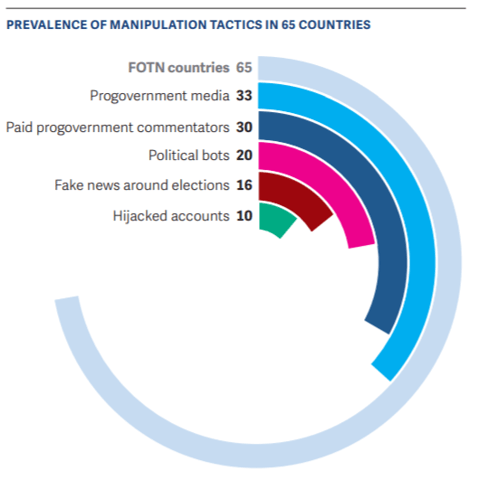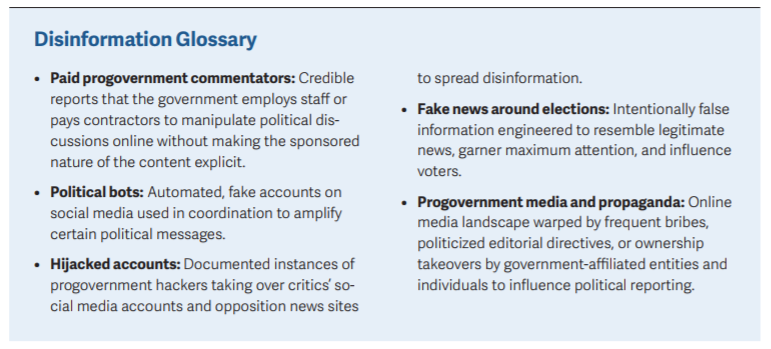A new report paints a stark picture of how cyber warfare is suddenly being used around the globe to hack, attack, and influence elections, more than ever before.
And there is a connection to information security.
"Cyber attacks became more common due in part to the increased availability of relevant technology, which is sold in a weakly regulated market, and in part to inadequate security practices among many of the targeted groups," says the 2017 Freedom on the Net report.
The report is a comprehensive study of internet freedom in 65 countries around the globe, covering 87 percent of the world’s internet users done annually.
Ways elections are being attacked with cyber tools
The report has a laundry list of cyber attacks on elections happening around the world. The Russian hacking of the DNC in the United States is one method, here are some others:
- DDoS attacks are increasingly bringing down independent blogs and news websites
- Activist social media accounts are being disabled and hijacked
- Opposition politicians and human rights defenders are being subjected to surveillance through the illegal hacking of their phones and computers.
"In many cases, such as in Bahrain, Azerbaijan, Mexico, and China, independent forensic analysts have concluded that the government was behind these attacks," the report says.

Record number of voters face social media distortion efforts
The report found that voters in the most countries ever, 30 out of 65 studied, faced social media distortion efforts.
"...in many countries, these tactics are used not by foreign powers, but by incumbent governments and political parties seeking to perpetuate their rule," says the report.
Income disparity plays a part in election influence efforts
When we read this section of the report, it made us think of Cigna CISO James Beeson and his keynote at SecureWorld Seattle. He believes income disparity will propel cyber threats in the future.
"In the Philippines, news reports citing former members of a 'keyboard army' said they could earn $10 per day operating fake social media accounts that supported Rodrigo Duterte or attacked his detractors in the run-up to his May 2016 election as president; many have remained active under his administration..."
Growing use of bots to shut out the opposition
Here is a picture of how it can be done, according to report researchers:
"In Mexico, an estimated 75,000 automated accounts known colloquially as Peñabots have been employed to overwhelm political opposition on Twitter."
"When a new hashtag emerges to raise awareness about a protest or corruption scandal, government backers employ two methods to game the system in favor of President Enrique Peña Nieto."
New ways to spread disinformation

Clearly, a new age of disinformation is dawning because of technology. To read more about it, check out the full report which is more than 40 pages long.




